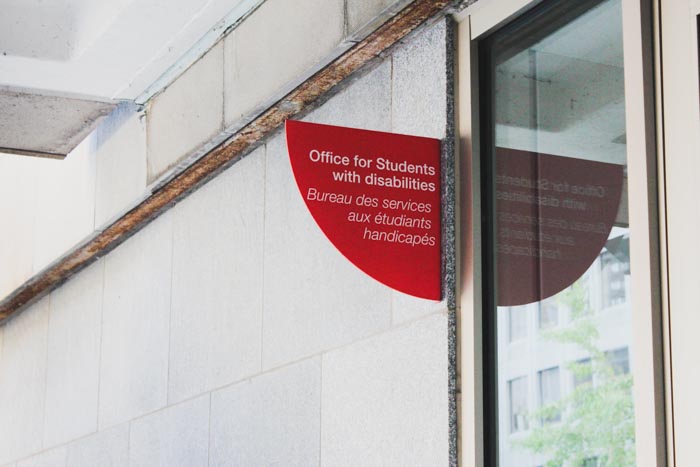Each semester, McGill’s Office for Students with Disabilities (OSD) recruits approximately 300 students to take notes for McGill courses and share them on MyCourses as a service to 600 other students with disabilities that hinder their ability to take notes for themselves. In Winter 2019, peer note-takers were paid $50 per class per semester. However, as of fall 2019, the OSD that will no longer continue to be paying any note-takers.
Instead, students who participate in the program will now be compensated through the addition of 10 community service hours to their co-curricular records, as well as an entry in a draw to win one of several gift cards at the end of the semester.
Some note-takers who felt taken advantage of by the sudden switch to unpaid work decided to drop out of the program in protest. A Reddit thread posted by a student about the issue encouraged students to email the OSD to express their frustrations, and encouraged anyone who needed the notes to email the student note-takers directly, since they did not want to cause problems for students with disabilities who rely on the service.
Director of the OSD Teri Phillips explained that their policy was changed to follow the footsteps of other schools in Canada.
“[The OSD has] seen, from our peer institutions, that a non-financially driven volunteer model works,” Phillips wrote to The McGill Tribune. “[P]eer note-taking is often a volunteer service at many other institutions, including the University of Toronto, Concordia University, Queen’s University, University of Alberta, and others.”
While some students are frustrated by this change, Phillips believes it is for the greater good. The money previously used to compensate note-takers is now being put toward funding more services for students with disabilities.
“Part of this reinvestment includes a collaboration with Teaching and Learning Services to add features to the lecture-recording system with complementary note-taking applications,” Phillips wrote. “Not only do these features specifically address some of the barriers related to attention and focus, they will also be made available to all students. This project should be completed in the near future, with a targeted launch for the Winter 2020 semester.”
Phillips claims that although a small number of students have quit, complaints about the new policy are few and might actually help recruit more note takers.
“The new model makes it possible to recruit additional volunteers [in one class] to share notes,” Phillips wrote. “This would not have been possible in previous years given the prohibitive costs.”
The OSD’s note-taker recruitment begins after the add/drop period. Despite the lack of monetary compensation, according to Phillips, 200 volunteers have already been recruited. The OSD is currently on track to recruit about the same number of note-takers as last year.
Victoria Pittard, a U3 computer science and biology student, has been a note-taker for two years. She raised concerns that uncompensated note-takers might be less motivated to submit high-quality notes.
“I, personally, if it was going to be [a] volunteer [service], would appreciate more hours being recognized, and at the very least [having known] before the semester that it was now a volunteer position.” Pittard said. “For most classes [that I took notes for], it involved making sure I was taking more detailed notes than I would otherwise and then formatting it in a way that was accessible. For example, my handwriting is questionable, so if it was a math class I’d then type it all up afterwards, which sometimes takes a little time.”
Pittard believes that including some incentives is important to keep note-takers motivated throughout the semester.
“Some people really would just upload [their notes] right before the exam or even after the exam and almost get lazy with it,” Pittard said. “I think that an incentive is really important. When you cut pay and don’t tell people before they sign up, that really reduces [the incentive to do well]. Even just better enforcement [of quality notes being uploaded on time would benefit the program].”








